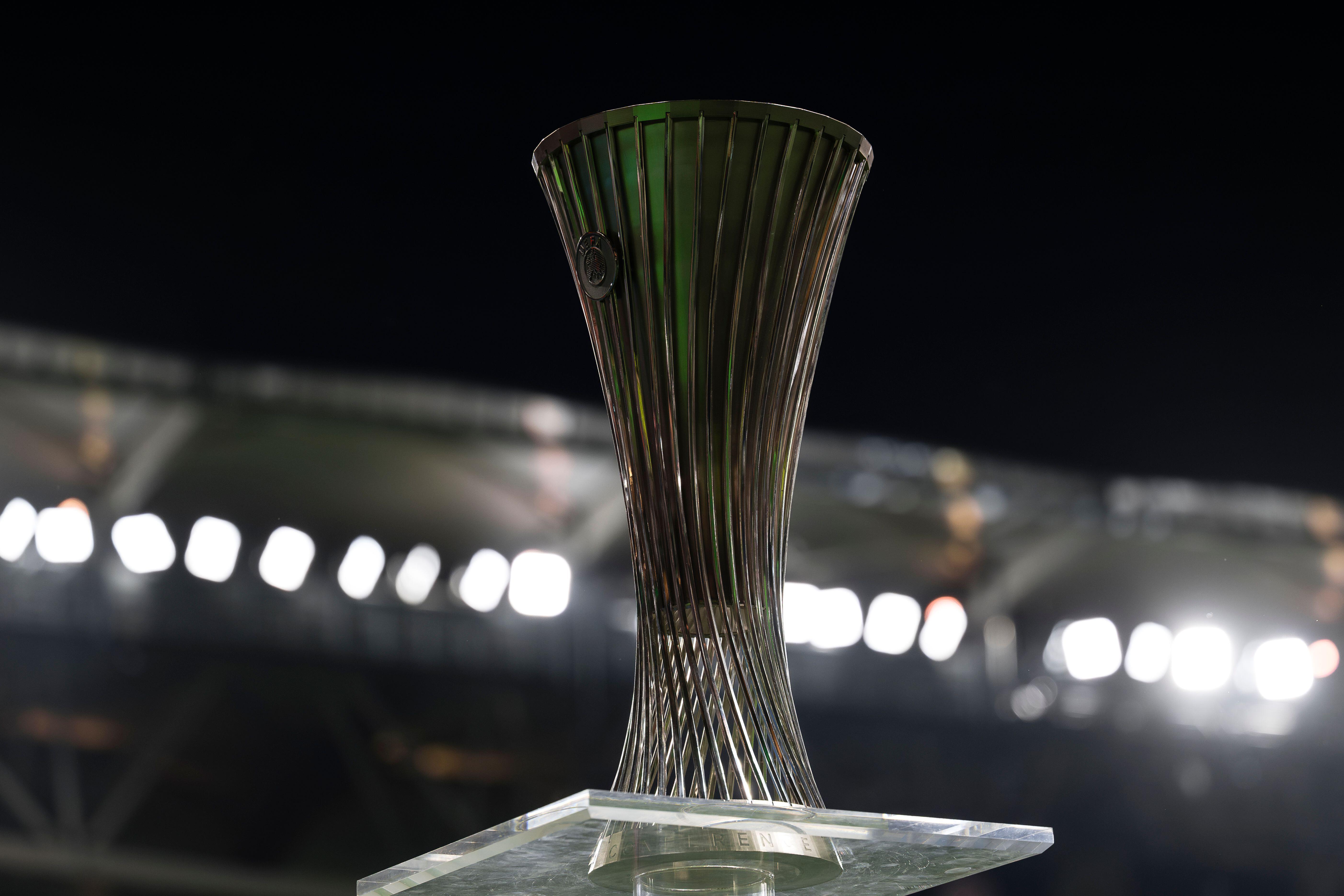20 teams that really weren't too good to go down
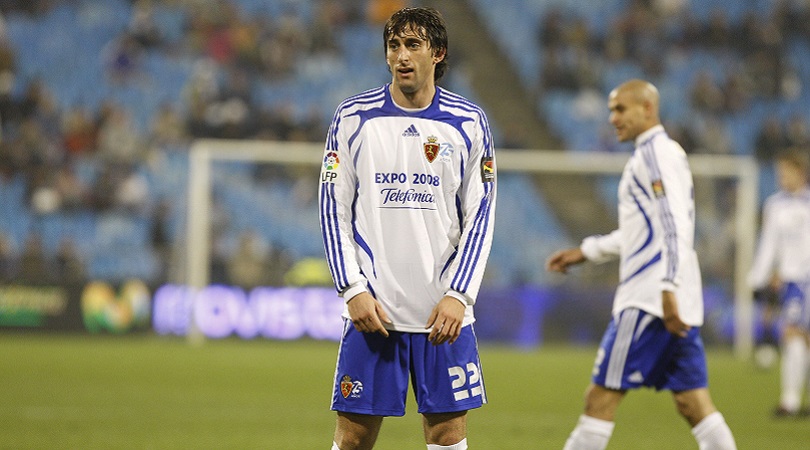
20. Real Zaragoza 2007/08
A gifted group of players that counted Pablo Aimar, Roberto Ayala and Diego Milito among their number took 42 points from 38 matches in 2007/08, but that relatively high tally wasn’t enough to save Real Zaragoza, who had spent 48 of the previous 51 seasons in the top tier of Spanish football.
A battling 2-2 draw with Real Madrid on the penultimate weekend of the campaign put them in a good position heading into the final day, but a 3-2 reverse at Mallorca spelled the end for a side that had finished sixth in 2006/07.
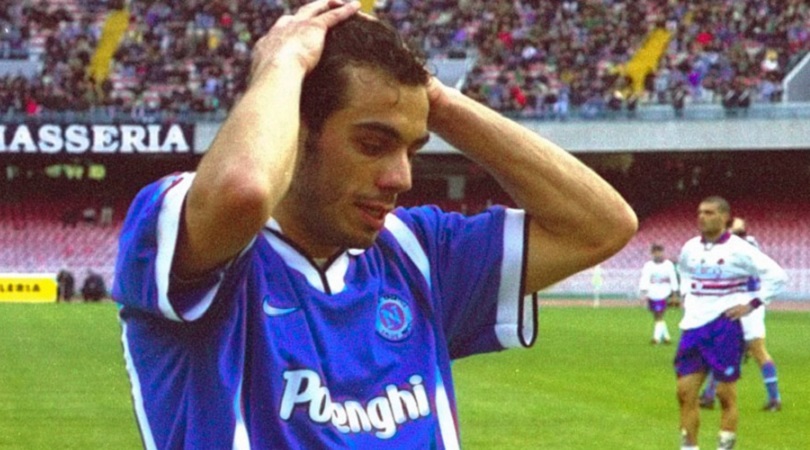
19. Napoli, 1997/98
The Napoli of 1997/98 were nowhere near as talented as the Scudetto-winning version that featured Diego Maradona, Ciro Ferrara and Gianfranco Zola eight years earlier, but they still should have been more than good enough to retain their place in Serie A.
Four managers were employed throughout a tumultuous campaign that saw the Partenopei earn just two wins and 14 points. Scoring only 25 goals and conceding 76 was never likely to be a recipe for success, and a team containing Robert Ayala, Claudio Bellucci and current Juventus coach Max Allegri were as good as relegated by March.
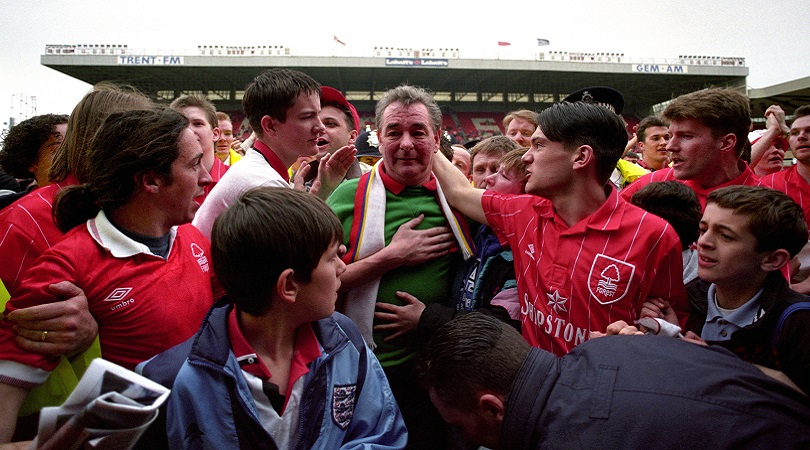
18. Nottingham Forest, 1992/93
Brian Clough bid an emotion farewell to Forest fans after a 2-0 defeat by Sheffield United confirmed an avoidable relegation at the City Ground.
The side of 1992/93 were significantly weaker than the back-to-back European Cup winners of 1979 and 1980, yet they were still good enough to survive. Teddy Sheringham may have been sold to Tottenham the previous summer, and Des Walker also left, but the squad could still count on Clough’s son Nigel, Stuart Pearce and Roy Keane.
Nevertheless, Forest spent most of the season rooted to the bottom and Clough’s extraordinary managerial career ended with a rare taste of failure.
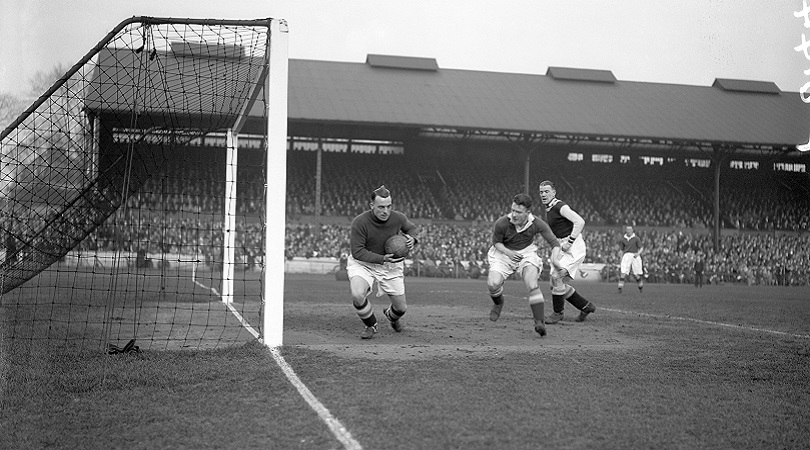
17. Aston Villa, 1935/36
Villa were the dominant side in the early years of the Football League, winning five of the first 12 titles on offer between 1888 and 1900. Their sixth crown followed in 1909/1910, and although the Villans failed to add to their collection in the next 25 years, no team bettered their haul until Arsenal in 1953.
The silverware may have dried up, but Villa were still a force in the 1930s: they finished second to the Gunners in both 1931 and 1933, and fifth in between. Yet a couple of mid-table finishes hinted at a slight decline, which culminated in a surprise demotion in 1935/36.
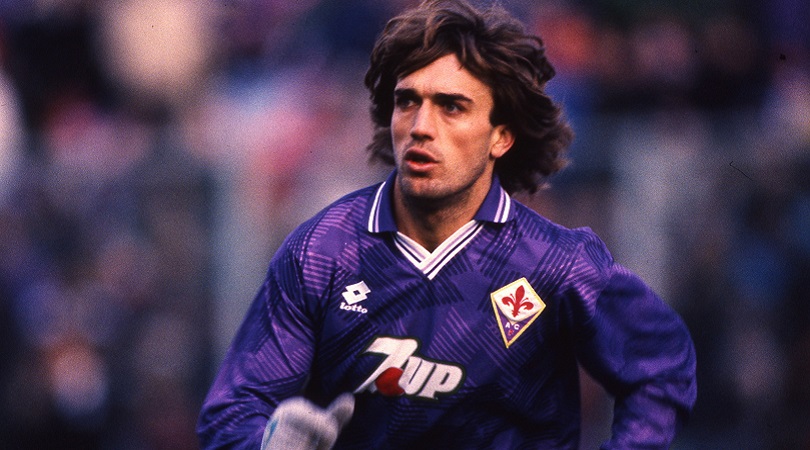
16. Fiorentina 1992/93
As they watched their team thrash Ancona 7-1 in September 1992 and extend their unbeaten start to the season to three games, Fiorentina fans would have been forgiven for dreaming of Europe. A 7-3 home defeat by Milan two weeks later brought them crashing back down to earth, though, and La Viola won only four of their subsequent 17 Serie A clashes.
Victories over Pescara and Cagliari in March gave them hope, but a return of six draws and two losses in their final nine encounters sent Gabriel Batistuta, Dunga, Stefan Effenberg et al. to the second tier.
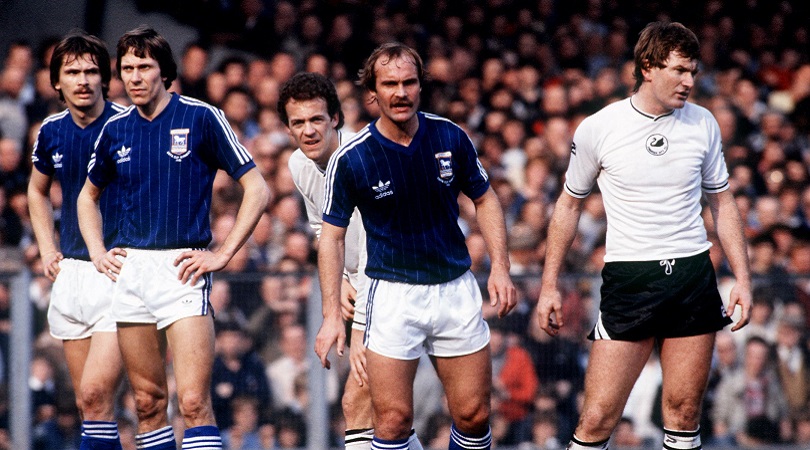
15. Swansea, 1982-86
An outstanding rise saw Swansea soar from the Fourth to First Division in four years between 1977 and 1981, but the fall was equally rapid. The club was dogged with financial problems between 1982 and 1986 and couldn’t prevent their dramatic bottom-to-top ascent happening in reverse.
Each season they appeared too good to go down but City proved people wrong time and time again, with a host of different managers – Doug Livermore, John Toshack, Les Chappell, Colin Appleton, John Bond and Tommy Hutchinson – all unable to stop the rot.
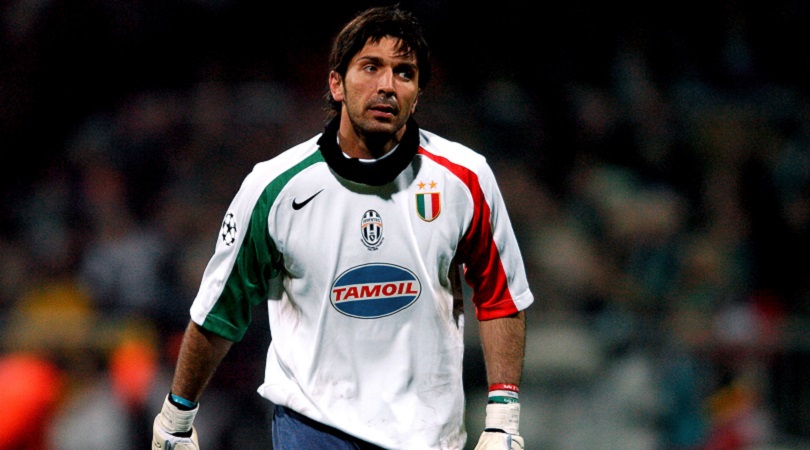
14. Juventus, 2005/06
A slight twist on the theme here – Juventus weren’t actually relegated on the field but in the courts. Regardless, a squad packed with world-class internationals like Gigi Buffon, Patrick Vieira, Pavel Nedved, Alessandro Del Piero and Zlatan Ibrahimović is probably the most talented to have ever gone down to a second division anywhere.
Juve’s crime was influencing the selection of referees rather than losing too many games. The Bianconeri amassed 91 points, were defeated just once and topped the table by three points. Notwithstanding such playing excellence, their actions away from the pitch led to an ignominious demotion.
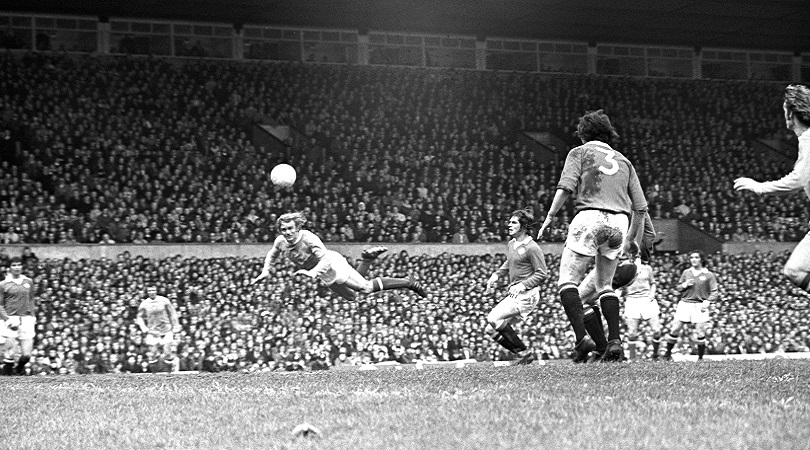
13. Man United, 1973/74
It’s often misconstrued today that Manchester City’s Denis Law relegated former club Manchester United with his backheeled winner in the 1974 end-of-season derby, since results elsewhere meant that Tommy Docherty’s outfit would have gone down anyway.
United’s problem was scoring goals: they managed just 38 in their 42 league games, with goalkeeper Alex Stepney’s two penalties enough to make him the club’s joint-top scorer at Christmas. A brief renaissance in spring – they gained nine points from a possible 10 against Chelsea, Burnley, Norwich, Everton and Newcastle – looked like it may be enough to lift the Red Devils out of trouble, but a loss on the final day condemned the side who’d won the European Cup in 1968 to the second tier.
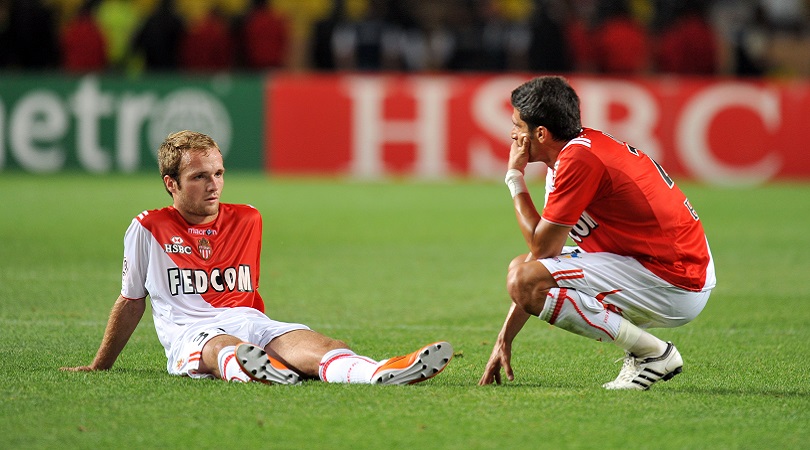
12. Monaco, 2010/11
The 2004 Champions League Final may have been missing Europe’s elite clubs, but it did feature two magnificent stories. Porto, led by a boisterous up-and-comer called Jose Mourinho, memorably defeated Manchester United in the round of 16, while Monaco’s scalps included Chelsea and Real Madrid.
Fast-forward seven years and Porto had won five more Primeira Ligas; Mourinho, four domestic titles and another Champions League. Monaco, meanwhile were relegated to Ligue 2.
The principality team only lost 12 games – the lowest figure of all bottom-half outfits – but drew far too many times (17) and finished the season two points adrift of Nantes in 17th.
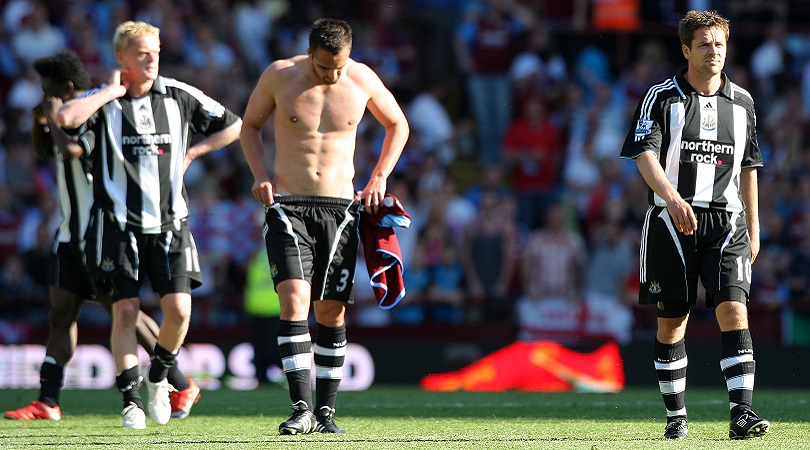
11. Newcastle, 2008/09
A creditable 1-1 draw at Manchester United on the opening day gave no hint of the turbulence that was to come for Newcastle in 2008/09. Geordie hero Kevin Keegan departed as manager in September due to disagreements with the board, who stunned the nation by turning to Joe Kinnear as his successor.
For all the off-field turmoil, the Magpies – whose talented squad contained Michael Owen, Damien Duff and Fabricio Coloccini among others – were sitting comfortable in mid-table in January. Two wins from their remaining 17 fixtures saw Newcastle sink down the standings, though, with caretaker manager Alan Shearer unable to save his beloved club in the final weeks.
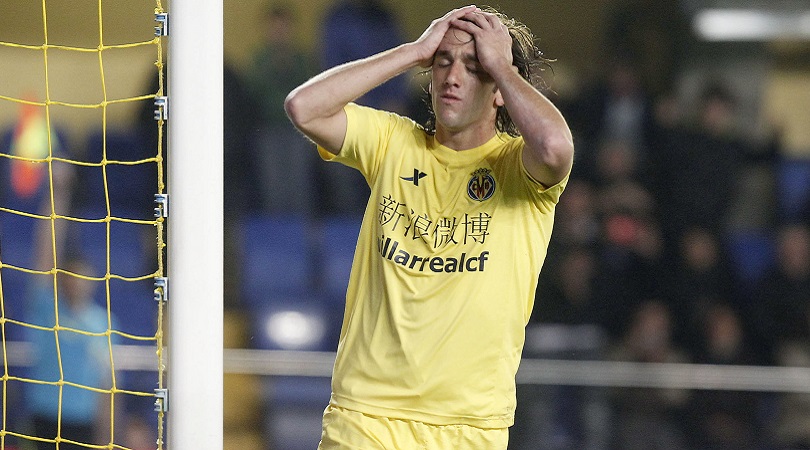
10. Villarreal, 2011/12
Having qualified for the Champions League the previous season, Villarreal were expected to once again challenge for the ‘best of the rest’ position behind Barcelona and Real Madrid in La Liga.
It wasn’t to be. The Yellow Submarine began the campaign with just one win in 10 and were never really able to recover, despite the presence of Giuseppe Rossi, Nilmar, Borja Valero and Marcos Senna. Villarreal scored just 39 times and conceded 53 to drop down to the Segunda Division.
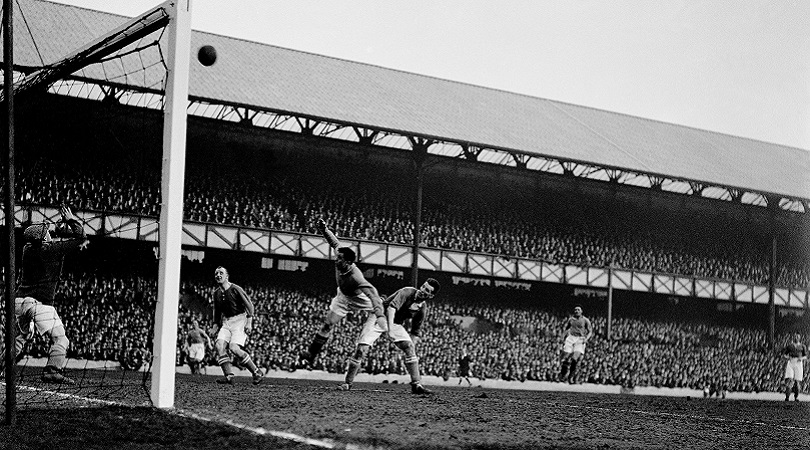
9. Everton, 1929/30
Everton scored 80 goals in 42 games – more than fifth-placed Leeds and three other top-half sides –but still finished bottom of the First Division.
A Dixie Dean-inspired outfit had fired the Toffees to the title two years earlier; the local lad found the back of the net 25 times in 1929/30, but Everton nonetheless found themselves cut adrift after a 4-2 loss to Grimsby in April. They almost completed a miraculous escape act with four victories in their final five games, but still finished a point short of safety.
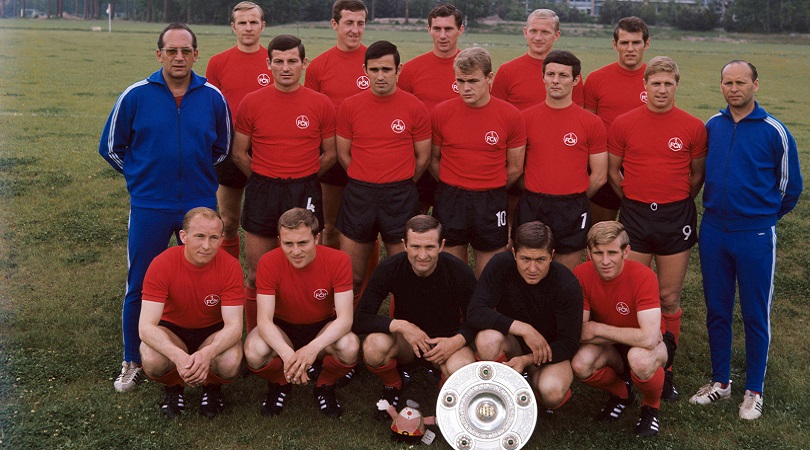
8. Nürnberg, 1968/69
German football has rightly been lauded for its forward-thinking and sensible planning in recent years, but they were behind the times when it came to adopting a nationwide professional league.
When such a system was finally introduced in 1963, there was, predictably, an initial state of flux: seven different clubs won the Bundesliga in the first seven years of its existence. Nürnberg were one of those, lifting the league title in May 1968. Twelve months later they were relegated.
Despite that championship win, manager Max Merkel brought in 13 new players and let 11 go, including the prolific striker Franz Brungs. Nürnberg’s new squad never really gelled and DerClub were sent down on the final day after a 3-0 loss at Köln.
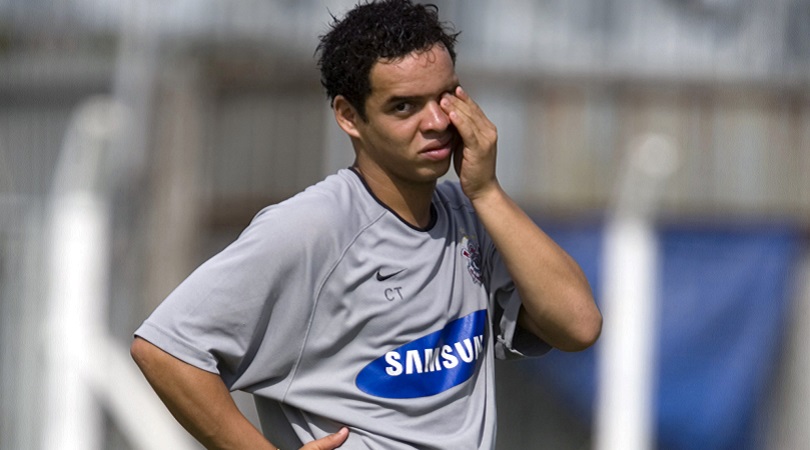
7. Corinthians, 2007
Corinthians’ 2005 title triumph masked some serious problems at the club. A lack of funds earlier in the decade convinced Corinthians directors to sign a controversial deal with Kia Joorabchian’s Media Sports Investments, which saw a substantial amount of control sanctioned off in return for funds which could be used to sign high-profile players like Carlos Tevez and Javier Mascherano.
Things, however, didn’t work out well: the relationship between Joorabchian and the club’s management was awful, with both parties looking out for their own interests. The partnership was terminated in July 2007 but the rot had already set in, and Corinthians were sent down to Serie B in December.
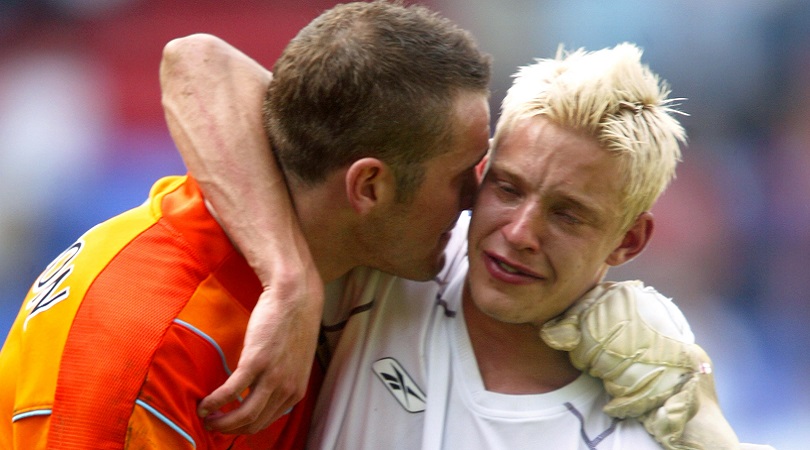
6. Leeds, 2003/04
Following a remarkable run to the Champions League semi-finals in 2000/01, Leeds chairman Peter Ridsdale gambled the club’s future by taking out huge loans which he intended to pay back through continued Champions League revenues.
However, Leeds failed to qualify for Europe’s biggest competition for the following two seasons and were forced to sell a number of stars – see Nigel Martyn, Olivier Dacourt and Harry Kewell – to ward off financial implosion ahead of the 2003/04 campaign.
The likes of Alan Smith, Paul Robinson, James Milner, Mark Viduka and Lucas Radebe remained, but it was probably only a matter of time before the club’s off-field nightmare caught up with them.
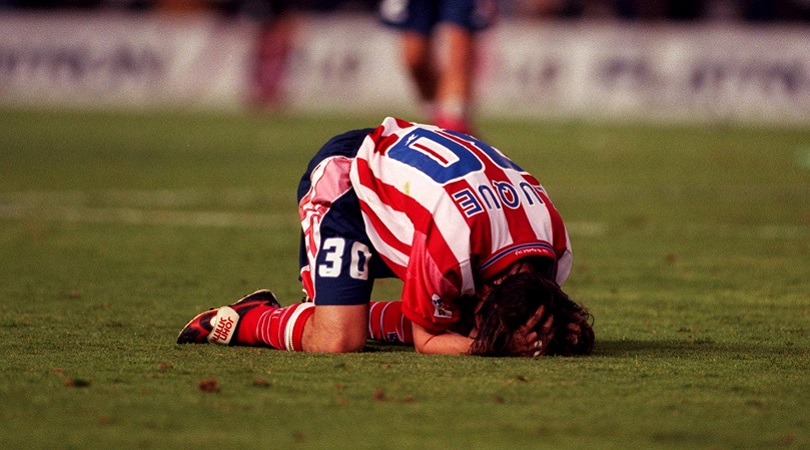
5. Atletico Madrid, 1999/00
In December 1999, just short of the season’s halfway point and with Atletico barely outside the drop zone, president Jesús Gil and the board were suspended amid allegations of the misappropriation of club funds. An administrator was appointed by the government to run the club, whose long-term future was thrown into doubt.
The players – Jimmy Floyd Hasselbaink, Joan Capdevila and Juan Carlos Valeron among them – struggled to deal with the off-field distractions. Claudio Ranieri resigned as manager in February with the Colchoneros still hovering precariously above the bottom three; his replacement Radi Antic couldn’t prevent them from dropping into it and, just four years on from their ninth league title, Atletico were relegated – despite only one player scoring more La Liga goals than Hasselbaink's 24.
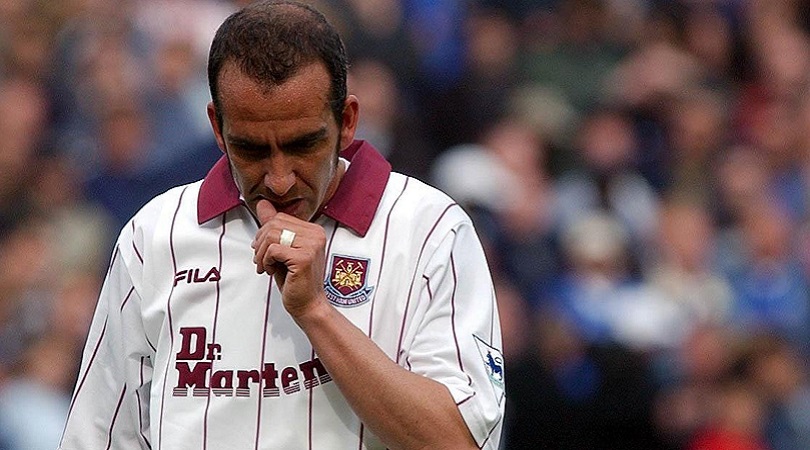
4. West Ham, 2002/03
Not even the presences of David James, Nigel Winterburn, Rio Ferdinand, Michael Carrick, Jermain Defoe, Paolo Di Canio, Freddie Kanoute, Les Ferdinand, Joe Cole and Glen Johnson were enough to prevent West Ham dropping to the second tier in 2003.
The Hammers collected 42 points – which would have been enough to survive in any other 38-game Premier League season – yet finished below the dreaded dotted line despite the embarrassment of riches in their squad. When Bolton beat Middlesbrough 2-1 on the final day, West Ham were condemned to Division One just four years after attaining their second-highest top-flight finish of fifth under Harry Redknapp.
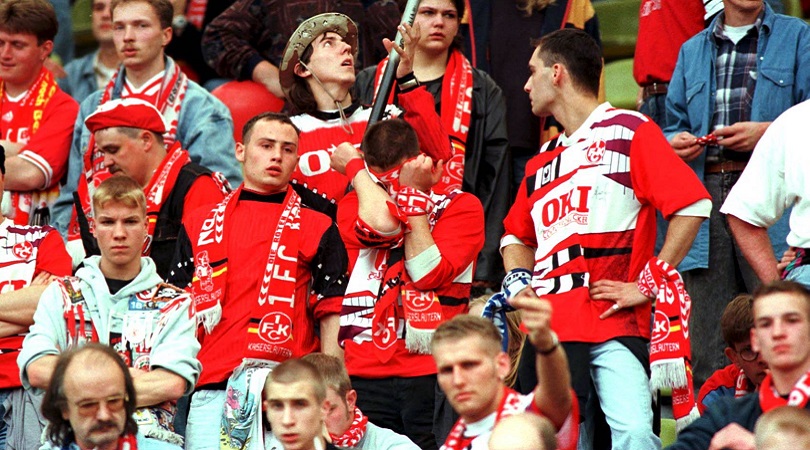
3. Kaiserslautern, 1995/96
Champions in 1990/91 and boasting a proud record of having never been relegated from the Bundesliga, Kaiserslautern went down in May 1996 to the great surprise of German fans everywhere.
The Red Devils had finished fourth the previous season and were hoping to replicate that heading into this campaign, but a penchant for drawing games proved the southerners’ undoing. Eighteen matches were tied, meaning Kaiserslautern lost just 10 times – the same as second-placed Bayern Munich.
Their defensive record was also very good, with only Schalke conceding fewer than their 38. Six wins from 34 games was a dreadful return, though, and Kaiserslautern duly fell through the trapdoor.
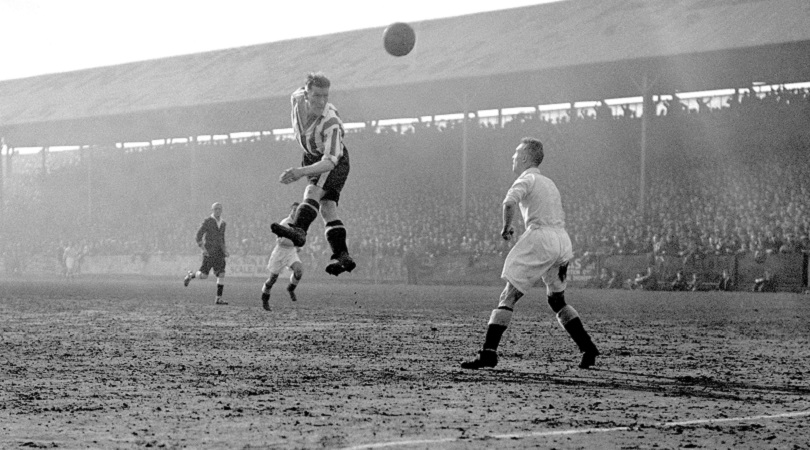
2. Man City, 1937/38
Younger football fans will only know City as the Abu Dhabi-backed, big-spending global powerhouses of today, but the club had a very different identity for much of its history.
The 1937/38 season was the perfect example of the phenomenon known as ‘City-itis’: Wilf Wild’s men, who were reigning First Division champions, were relegated with a positive goal average and the league’s best scoring record. Seventy-seven years on they remain the only English side to top the division and then suffer relegation the following campaign.
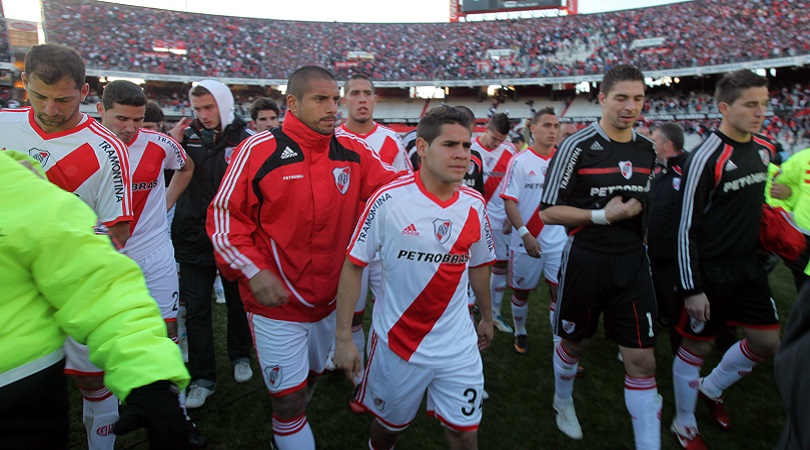
1. River Plate, 2010/11
Of all the shocking relegations listed here, River Plate’s was the most astounding. The embarrassing fall into Nacional B was caused partly by a financial crisis that engulfed the club. Even so, the events that followed were unthinkable, not least because Argentina’s system of deciding relegation on a three-year points average was specifically designed to help the bigger clubs.
Each Argentine season is divided into two short tournaments. River finished bottom of the pre-Christmas league in 2008 and lower-mid-table in both parts of 2009/10, while fourth and ninth place in 2010/11 were not enough to avoid a relegation play-off, where a team featuring Erik Lamela, Manuel Lanzini and Roberto Pereyra were defeated by Belgrano 3-1 on aggregate.

Greg Lea is a freelance football journalist who's filled in wherever FourFourTwo needs him since 2014. He became a Crystal Palace fan after watching a 1-0 loss to Port Vale in 1998, and once got on the scoresheet in a primary school game against Wilfried Zaha's Whitehorse Manor (an own goal in an 8-0 defeat).
